
On June 6, 2025, Agro Ukraine Summit will take place, a major international agricultural event that will bring together all key stakeholders in Ukraine’s agricultural and food sectors.
The summit aims to identify current challenges and opportunities for the development of the agricultural sector, discuss ways of integration into the EU, and formulate a vision of Ukraine’s agri-food future.
Venue: 16a Parkova Road, Kyiv, CEC “Parkovy”
For whom the event is intended: crop and livestock producers, elevators, agro-processors, logisticians, traders and all companies providing equipment, technologies and services to the relevant industries.
Number of participants: 2500+
The Summit will include:
6 conferences:
– “Agro Ukraine Summit” conference
– Conference “AgriTech Conference”
– Conference “Futurology or the future of grain storage”
– Conference “Effective livestock and poultry farming”
– Conference “Processing trends in crop production”
– Conference “Solar Agro Conference”
Presentations by industry experts with cases of effective agribusiness, government officials and experts;
Exhibition of technological solutions and equipment from leading manufacturers (100+ stands);
Live music, lounge area;
Coffee breaks, receptions.
For more information, please visit the official website: https://agro-ukraine-summit.com
For partnership and participation in the exhibition, please contact the organizers:
+38 096 899 4272 | +38 067 243 3803 | proagro-inform@ukr.net
Interfax-Ukraine is the official media partner of the event.
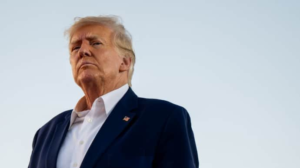
US President Donald Trump has announced the introduction of large-scale duties on US imports. The tariffs are expected to affect trade volumes worth trillions of dollars.
Speaking in the Rose Garden near the White House, the US president announced “very, very good news”.
“In a few minutes, I will sign a historic executive order on reciprocal tariffs for countries around the world. Reciprocal. That means what they do to us, we’ll do to them. Very simple. It couldn’t be simpler,” Trump noted.
He criticized Thailand, India, Vietnam and other countries for unfair, in his opinion, tariff policies and tax regimes on American goods. And gave the example that the US charges only 2.4% duty on motorcycles, while India charges 70% and Vietnam 75%.
Also before signing the executive order, he went on to describe at length the “unfair tariffs” that other countries have imposed on U.S. goods. “Sometimes friends are worse than enemies,” Trump said, referring to the high tariffs that certain allied countries like Japan have imposed.
“This is one of the most important days in American history. This is our declaration of economic independence,” the US president emphasized.
“Against countries that treat us badly, we will calculate the sum of their tariffs, non-monetary barriers and other forms of fraud,” he said, explaining exactly how much ‘reciprocal tariffs’ the US will impose.
He also reiterated that the U.S. will impose 25 percent tariffs on all foreign-assembled cars at midnight April 2 to 3. And he also announced a universal or “minimum basic tariff” of 10 percent on imports.
The amount of duties by major U.S. trading partners
According to the executive order, the U.S. imposes additional duties in the amount of:
China – 34%
European Union – 20%
Vietnam – 46%
Taiwan – 32%
Japan – 24%
South Korea – 25%
Thailand – 36%
Switzerland – 31%
Indonesia – 32%
Malaysia – 24%
Cambodia – 49%
Great Britain – 10%
South Africa – 30%
Brazil – 10%
Bangladesh – 34%
Singapore – 10%
Israel – 17%
Philippines – 17%
Chile – 10%
Pakistan – 29%
Sri Lanka – 44%
The reciprocal tariffs will come into effect on April 9, 2025. And all countries will start paying the minimum base tariff on April 5.
And the base tariff of 10% will be added to the tariffs imposed against specific countries. This means, for example, that for Chinese goods the tariff will be 44% (34+10), for goods from the EU – 30% (20+10).
How the new duties were prepared
Previously, Trump and his inner circle named the European Union, Mexico, Canada, Japan, South Korea, Vietnam and India as likely targets of future duties in an effort to “punish unfair trade practices.”
According to Bloomberg, $33 trillion worth of global trade is in the crosshairs, with countries from Brazil to China facing a 4 to 90 percent drop in exports to the United States. Presumably, average duties could rise by 15%, driving up inflation and increasing the risk of a U.S. recession.
The measures taken today are in addition to steps taken since Trump took office in January. His administration has imposed an additional 20% tax on all imports from China and 25% on many goods from Mexico and Canada. There is also a global 25% tariff on steel and aluminum imports. An executive order was also signed imposing 25% duties on imports of automobiles and certain parts (effective April 3).
What the consequences could be
According to Bloomberg, under the maximum approach, average tariff rates in the U.S. would increase to 2%, which would reduce U.S. GDP by 4% and increase prices by nearly 2.5% over two to three years.
The impact on trading partners in any scenario would be severe. China, the EU, and India could top the list of countries that would be affected by the impact on exports to the US, although their economies could endure. Canada and Southeast Asian countries are likely to feel a larger overall impact.
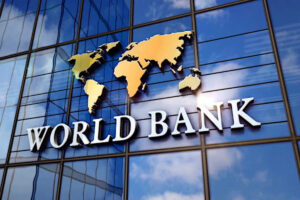
Information and analytical center Experts Club analyzed the data of the International Monetary Fund (IMF) on the external debts of states and their ratio to the GDP of states. The video is available on the Experts Club YouTube channel. In 2023, the leader in terms of public debt to GDP was Sudan – its figure reached 252%. This is due to the economic crisis, the consequences of the armed conflict and hyperinflation.
In second place is Japan (206%), which traditionally holds a high debt burden due to large-scale government borrowing and debt financing of the budget.
Third place went to Lebanon (195%), whose economy continues to suffer from the effects of the financial crisis, corruption and political instability.
Further down in the ranking are:
4. Greece – 185%
5. Singapore – 177%
6. Argentina – 155%
7. Italy – 132%
8. Zambia – 127%
9. Bahrain – 123%
10. Maldives – 123%
11. Bhutan – 116%
12. Laos – 116%
13. Cape Verde – 114%
14. Barbados – 113%
15. USA – 112%
16. Cyprus – 112%
17. Portugal – 105%
18. Great Britain – 101%
19. Dominica – 100%
20. Republic of Congo – 99%

Maxim Urakin, founder of the information and analytical center Experts Club, PhD in Economics, said that a high level of public debt in relation to GDP is a serious challenge for the economy of any country.
“In some cases, such as Sudan or Lebanon, this is a consequence of structural crises, armed conflicts, and political instability. At the same time, countries such as Japan and Singapore, despite their high debt ratios, have sustainable economic models that allow them to effectively manage their financial obligations. It is crucial for Ukraine to find a balance between attracting external financing and ensuring economic sustainability to avoid a debt trap and excessive dependence on creditors,” Urakin said.
As of 2023, Ukraine’s external debt totaled $132.4 billion and its ratio to GDP was 87%. Ukraine is not among the top 20 countries with the highest debt-to-GDP ratio, but ranks high among countries with large government liabilities.
In terms of absolute debt, Ukraine is about 30th in the world, but due to the military conflict and the need for external financing, this indicator continues to grow.
If the situation does not stabilize, further growth of the debt burden is predicted, which may lead to difficulties in debt servicing and increased dependence on international creditors.
Video analysis is available at the link – https://www.youtube.com/shorts/oT_5cTOnM8k
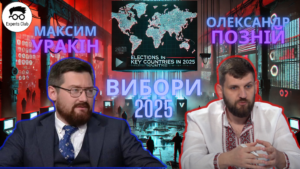
The world is entering a phase of political change in 2025. Important elections will take place in different countries, the results of which can significantly affect both geopolitics and internal processes of states. In a new YouTube video, Maksym Urakin, founder of the Experts Club think tank, and Oleksandr Poznyi, co-founder of the Active Group research company, analyze the main political events of the year and the possible consequences for Ukraine.
After the scandalous cancellation of the presidential election results, a second vote is scheduled for December 2024 in Romania. The election brought unexpected results, and the winner of the first round campaigned exclusively on TikTok. This sparked discussions around the world, as it was the first time a social network played a key role in the political process. However, the country’s Constitutional Court canceled the election results due to the detected Russian influence, and a new vote is scheduled for May 2025.
“The situation in Romania is unprecedented, as the Constitutional Court has annulled the first round of elections. This may cause political turbulence, which will affect the country’s foreign policy,” said Maksym Urakin, founder of the Experts Club information and analytical center.
In his turn, Oleksandr Poznyi emphasized that this case proves that influence technologies are changing, and social networks such as TikTok can become a key tool for voter mobilization.
“This is a dangerous signal for Ukraine as well, because we see that political forces are beginning to use this platform as a way to manipulate public opinion,” added Pozniy.
On February 23, early elections to the Bundestag will be held after the coalition collapse in 2024. The main struggle will be between the Christian Democratic Union (CDU) and the Social Democratic Party of Germany (SPD), but the right-wing Alternative for Germany (AfD) party, which has anti-immigration and pro-Russian rhetoric, may also play an important role.
“The struggle between the CDU and the SPD will be intense. If the AfD gets second or even first place, it could change Germany’s policy towards Ukraine. So far, the mainstream parties are not ready to form a coalition with them, but their influence is growing,” Maksym Urakin believes.
The parliamentary elections in Moldova will also determine the country’s foreign policy course.
“Moldova is facing a choice between the European path and the pro-Russian vector. This choice will have a significant impact on regional policy. The elections will decide whether the country will continue its European course under the leadership of President Maia Sandu or whether the Socialists, represented by Igor Dodon, will be able to regain power,” said Poznyi.
He also emphasized that Moldova is a parliamentary republic, and even if Sandu wins the presidential election, it does not guarantee that her political force will retain a majority.
On May 18, Poles will elect a new president, as Andrzej Duda cannot run for a third time. Experts believe that this is one of the most important elections for Ukraine, as Polish support is strategic. The tense confrontation between Law and Justice and the opposition will determine the future of Polish-Ukrainian relations. The Ukrainian issue will play an important role, but voters are more focused on domestic issues, such as the situation with Polish farmers who are unhappy with Ukrainian grain imports.
“Candidates will have to maneuver between supporting Ukraine and protecting national interests,” says Mr. Poznyi.
Serbia is one of the few countries in Europe that continues to balance between the EU and Russia. President Aleksandar Vucic has twice hinted at the possibility of early elections in 2025, especially amid protests and the escalating situation in Kosovo.
In October, elections will also be held in Canada and Argentina, which could change the foreign policy courses of these countries. On September 8, Norway will vote, and on November 16, Chile will vote.
“The elections in Canada are important for Ukraine, as further assistance will depend on them. It is also worth following the processes in Norway, which supports European security,” summarizes Maksym Urakin.
The year 2025 promises to be full of important political events that could change the international agenda. Ukraine must take into account the possible consequences of elections in strategic countries and prepare for new challenges on the global stage.
For more details about the elections to be held this year, please watch the video:
Subscribe to the Experts Club channel here:
https://www.youtube.com/@ExpertsClub
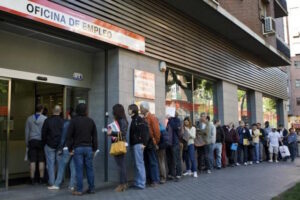
Unemployment in the euro zone in December last year amounted to 6.3% compared to the all-time low of 6.2% a month earlier, the statistical office of the European Union said. Analysts had also expected 6.3%, according to Trading Economics. The November level, meanwhile, was revised up from 6.3%. By comparison, unemployment was 6.5% in December 2023.
The number of unemployed in the region rose by 96,000 in December from the previous month to a three-month high of 10.83 million.
The unemployment rate among young people (population under 25) fell to 14.8% from 14.9%.
The lowest unemployment rate among the largest eurozone countries was recorded in Germany (3.4%, the same as a month earlier), the highest – in Spain (10.6% vs. 10.7% in November). In France, unemployment in December increased by 0.1 percentage points and reached 7.8%, in Italy – increased by 0.3 p.p. to 6.2%.
In the European Union as a whole, unemployment stood at 5.9% last month, up from 5.8% in November. It stood at 6% in December 2023.
Earlier, the Experts Club think tank and Maxim Urakin released a video analysis on the state of the economy and debt in the world, see more on the YouTube channel:
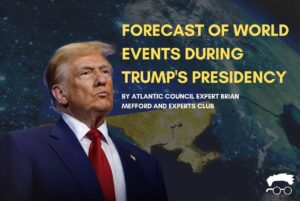
Today, Donald Trump will officially begin his term as the 47th President of the United States of America. His possible actions and strategies in the international arena were the main topic of discussion at a meeting of experts organized by the Atlantic Council and Experts Club. Brian Mefford, Senior Fellow at the Atlantic Council’s Eurasia Center, and Maksym Urakin, founder of the Experts Club, discussed key issues that will affect the geopolitical situation in the world, including Ukraine.
Brian Mefford noted that Trump’s first months in office will be focused on resolving domestic issues, such as the confirmation of his cabinet members in the Senate. However, the expert emphasized that Ukraine will remain an important issue in US foreign policy.
“Ukraine already has a special envoy, General Kellogg. Although his visit to Kyiv was postponed, it shows that Ukraine remains a priority. Its security is crucial for stability in the region,” Mr. Mefford said.
One of the key topics of discussion was Ukraine’s membership in NATO, which was first promised at the Bucharest Summit in 2008. According to Brian Mefford, this decision could have prevented many of the current problems.
“It was a serious mistake at the time. Russia used this uncertainty: first in Georgia and then in Ukraine. Now, because of the war on its own territory, the NATO issue for Ukraine is being postponed indefinitely. At the same time, there is a need for long-term security guarantees. Ukraine needs modern weapons, so the United States and European partners must remain reliable allies of Ukraine,” he explained.
At the same time, according to the expert, the issue of NATO funding became one of the most discussed during Trump’s first presidency, when he called on European countries to increase their defense spending.
“The United States spends more on defense than the next nine countries combined. Trump was right to insist that European countries spend at least 2% of GDP on defense. And now these requirements are being met. Increasing defense spending in Europe is in everyone’s interest. The alliance remains a powerful tool for ensuring stability,” Mr. Mefford emphasized.
According to him, the US withdrawal from NATO is currently an unlikely scenario.
Mefford suggested that the Trump administration will continue its tough economic policy towards China, including trade wars.
“China does not follow fair rules in international trade. Support for Taiwan will remain unchanged, as the United States has strategic interests in the region. Although China often demonstrates strength, its economy is on the verge of recession and its military power is exaggerated,” he explained.
The expert also touched upon the issue of sanctions against Russia, which remain an effective tool of international pressure.
“Trump imposed more sanctions against Russia during his previous term than Obama did. Their mitigation is possible only if the war ends. This is a long-term mechanism that cannot be ignored,” emphasized Mefford.
Maksym Urakin, founder of the Experts Club think tank, in turn, emphasized the importance of Donald Trump’s election for Ukraine and the world and reminded of other important elections for Ukraine and the region in 2025:
“For Ukraine, partnership with the United States is crucial. However, we need to be prepared for different scenarios and strengthen our economic resilience and diversify our foreign policy, given the very important elections this year in Germany, Poland, Romania, Moldova, and Canada. The world is becoming very dynamic in the future,” said Maxim Urakin.
The experts’ analysis showed that Trump’s policy toward Ukraine will be shaped by both internal and external factors. At the same time, Ukraine’s role in global security will only grow, and international support will remain critical for security on the European continent.
The full version of the video is available here:
You can subscribe to the Experts Club YouTube channel here:
https://www.youtube.com/@ExpertsClub
Atlantic Council, EXPERTS CLUB, NATO, SECURITY, TRUMP, UKRAINE, URAKIN, USA, Меффорд